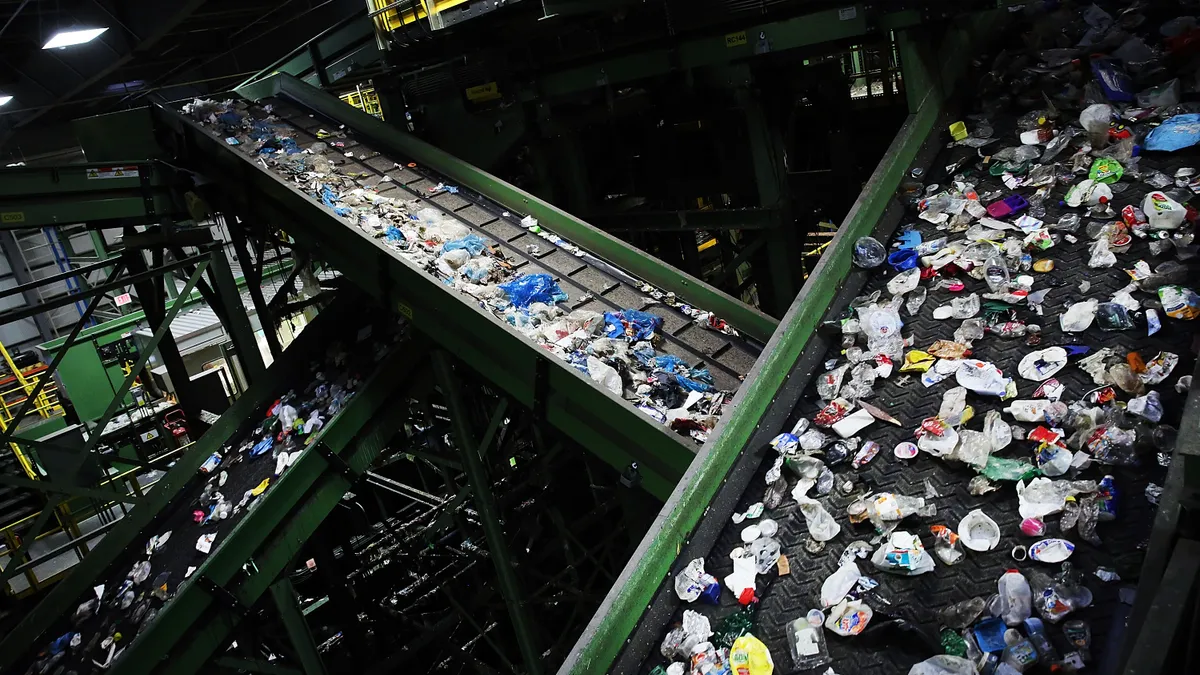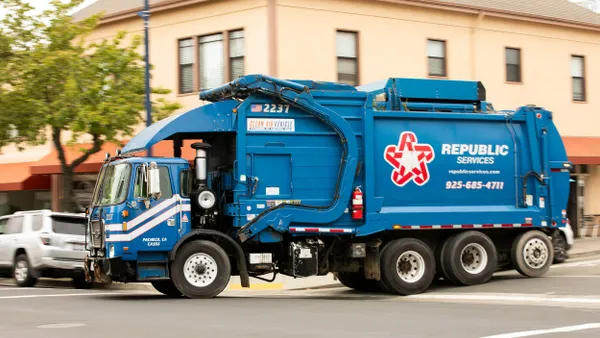Dive Brief:
- The Recycling Partnership's webinar about the growing effect of China's National Sword scrap import policies put a strong emphasis on the need for companies and municipalities to stay the course with their recycling efforts. The nonprofit urged against dropping any material from recycling programs or "freaking out" residents. Instead, ongoing communication with industry partners and the public was said to be key.
- Reducing contamination, both at the generator level and at MRFs, was among the top recommendations from multiple speakers. MRF operators from Casella Recycling in Massachusetts, Balcones Resources in Texas, RethinkWaste in California and Dem-Con in Minnesota all described changes that were underway to purchase new equipment or slow down their lines as a result of this increased focus on quality.
- The gravity of recent commodity drops was also an underlying factor throughout the session. Paper and plastic market analysts described some alternative solutions for their respective commodities, though said none could make up for Chinese demand in the short-term. All of the MRF operators said they were still finding outlets for their material, but margins were getting thin. Bob Cappadona, vice president of Casella Recycling, estimated that the value of an average single-stream ton coming into his company's Northeast MRFs had dropped by about 50% within the past four to six weeks.
Dive Insight:
The Recycling Partnership has joined the industry's top trade associations in working with the federal government to advocate for a delay or reconsideration of China's new import policies. This year's restriction on import licenses has already begun to hurt prices for some commodities, worse than anything since the 2008-2009 recession. Upcoming plans for a 0.3% contamination requirement and a potential ban on 24 material types, including mixed paper and mixed plastics, could further exacerbate the situation by next year.
This has also caused domestic prices for materials, like OCC, to nearly double in China within the past two months, leading some to hope that the country will allow foreign fiber to flow back in soon. However, multiple speakers warned that the Chinese government may be willing to weather this shift. As President Xi Jinping moves into an expected second term, he has reportedly found anti-pollution messaging to be popular politics. This is one of multiple reasons that short-term disruption to Chinese paper mills may be less important within his larger environmental and economic plans. But, as was repeated many times during the webinar, fully understanding the motivations or future actions of such an opaque government process is next to impossible.
That hasn't stopped CEOs, state regulators or local officials from offering a wide range of prognostications in recent weeks. The level of concern often correlates with their reliance on Chinese markets. Some in Oregon have already talked about cutting materials from their programs. Reactions in other parts of the country range from concerned awareness to borderline denial. In many cases, this is driven by the very real fear of disturbing consumer confidence in recycling programs through dropping materials or admitting that some of the recent "zero waste" targets could be out of reach for the near future.
Regardless of a program's reliance on foreign exports, it's difficult to avoid the current drag on market prices. No matter what happens with China's National Sword policies, they have already reinforced the need to reduce contamination among consumers and improve sorting quality at MRFs. For Casella, this has meant adding staff at multiple points for quality control. For companies such as Dem-Con or Balcones, located in areas with low unemployment rates, new sorting technology or slower throughput may be the solution. For all involved, contract terms that move a larger share of commodity shifts to customers is also a priority. Right now, no matter how optimistic some in the industry may be, service providers and MRF operators are doing whatever it takes to keep operations smooth until more details materialize.












